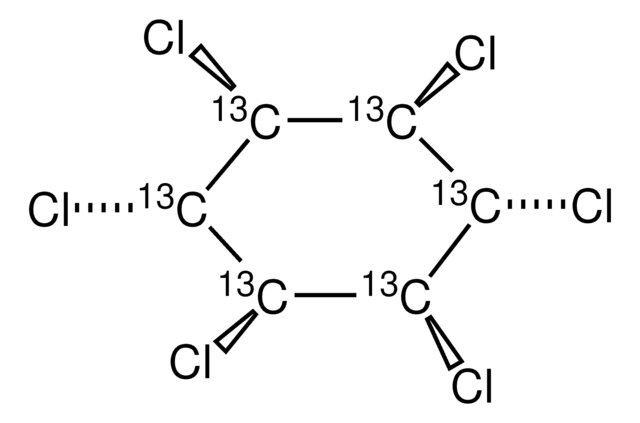50494721
Discovery® C18 (5 µm) HPLC Columns
L × I.D. 5 cm × 2.1 mm, HPLC Column
Sign Into View Organizational & Contract Pricing
All Photos(1)
About This Item
UNSPSC Code:
41115700
eCl@ss:
32110501
Recommended Products
product name
Discovery® C18 HPLC Column, 5 μm particle size, L × I.D. 5 cm × 2.1 mm
Agency
suitable for USP L1
feature
endcapped
extent of labeling
12% Carbon loading
parameter
≤70 °C temp. range
technique(s)
HPLC: suitable
L × I.D.
5 cm × 2.1 mm
surface area
300 m2/g
surface coverage
3 μmol/m2
impurities
<10 ppm metals
matrix
silica gel, high purity, spherical particle platform
matrix active group
C18 (octadecyl) phase
particle size
5 μm
pore size
180 Å
operating pH range
2-8
separation technique
reversed phase
Looking for similar products? Visit Product Comparison Guide
Related Categories
General description
Use Discovery® C18 for any method that specifies a C18. The exceptional peak shape, reproducibility, and stability make it the column of choice for all C18 methods from demanding to routine.
Features and Benefits
- Excellent reproducibility
- Exceptional peak shape for basic and acidic analytes
- Stable, low-bleed LC-MS separations
- Separation of peptides and small proteins
- Lower hydrophobicity than many comparable C18 columns, providing faster analysis
Legal Information
Discovery is a registered trademark of Merck KGaA, Darmstadt, Germany
guard cartridge
Product No.
Description
Pricing
Choose from one of the most recent versions:
Already Own This Product?
Find documentation for the products that you have recently purchased in the Document Library.
Customers Also Viewed
Pei Yuan et al.
Chemistry (Weinheim an der Bergstrasse, Germany), 15(42), 11319-11325 (2009-09-18)
This study systematically investigates periodic mesoporous organosilicas (PMOs) with controlled helical and concentric circular (CC) pore architectures prepared through a basic-catalyzed sol-gel process by using an achiral cationic surfactant trimethyloctadecylammonium bromide (C(18)TAB) as a structure-directing agent, perfluorooctanoic acid (PFOA) as
R Nageswara Rao et al.
Biomedical chromatography : BMC, 23(11), 1145-1150 (2009-05-16)
A highly sensitive and selective on-line two-dimensional reversed-phase liquid chromatography/electrospray ionization-tandem mass spectrometry (2D-LC-ESI/MS/MS) method was developed and validated to determine rifaximin in rat serum by direct injection. The 2D-LC-ESI/MS/MS system consisted of a restricted access media column for trapping
Yoshinori Masukawa et al.
Journal of lipid research, 49(7), 1466-1476 (2008-03-25)
Ceramides (CERs) in human stratum corneum (SC) play physicochemical roles in determining barrier and water-holding functions of the skin, and specific species might be closely related to the regulation of keratinization, together with other CER-related lipids. Structures of those diverse
Pilar Heredia-Middleton et al.
Comparative biochemistry and physiology. Part B, Biochemistry & molecular biology, 149(4), 552-556 (2008-02-01)
Heat shock protein 70 (HSP70, 70 kDa) is the most commonly expressed protein in response to thermal stress. The extent of its expression is associated with differences in environmental temperatures. We investigated the heat shock response in red blood cells
Xiaofang Hou et al.
Journal of separation science, 36(4), 706-712 (2013-02-13)
Most of the anti-breast cancer drugs are often limited owing to drug resistance and serious adverse reactions. Therefore, development of more targeted and low toxic drugs from traditional Chinese medicines for breast cancer are needed. At the same time, establishment
Related Content
Discovery C18 and C8 HPLC Columns products offered
Our team of scientists has experience in all areas of research including Life Science, Material Science, Chemical Synthesis, Chromatography, Analytical and many others.
Contact Technical Service





